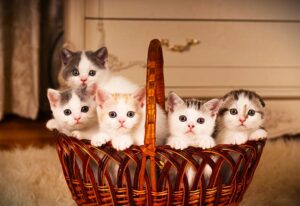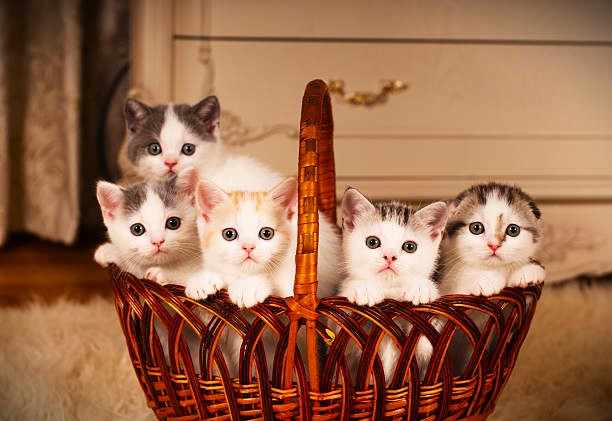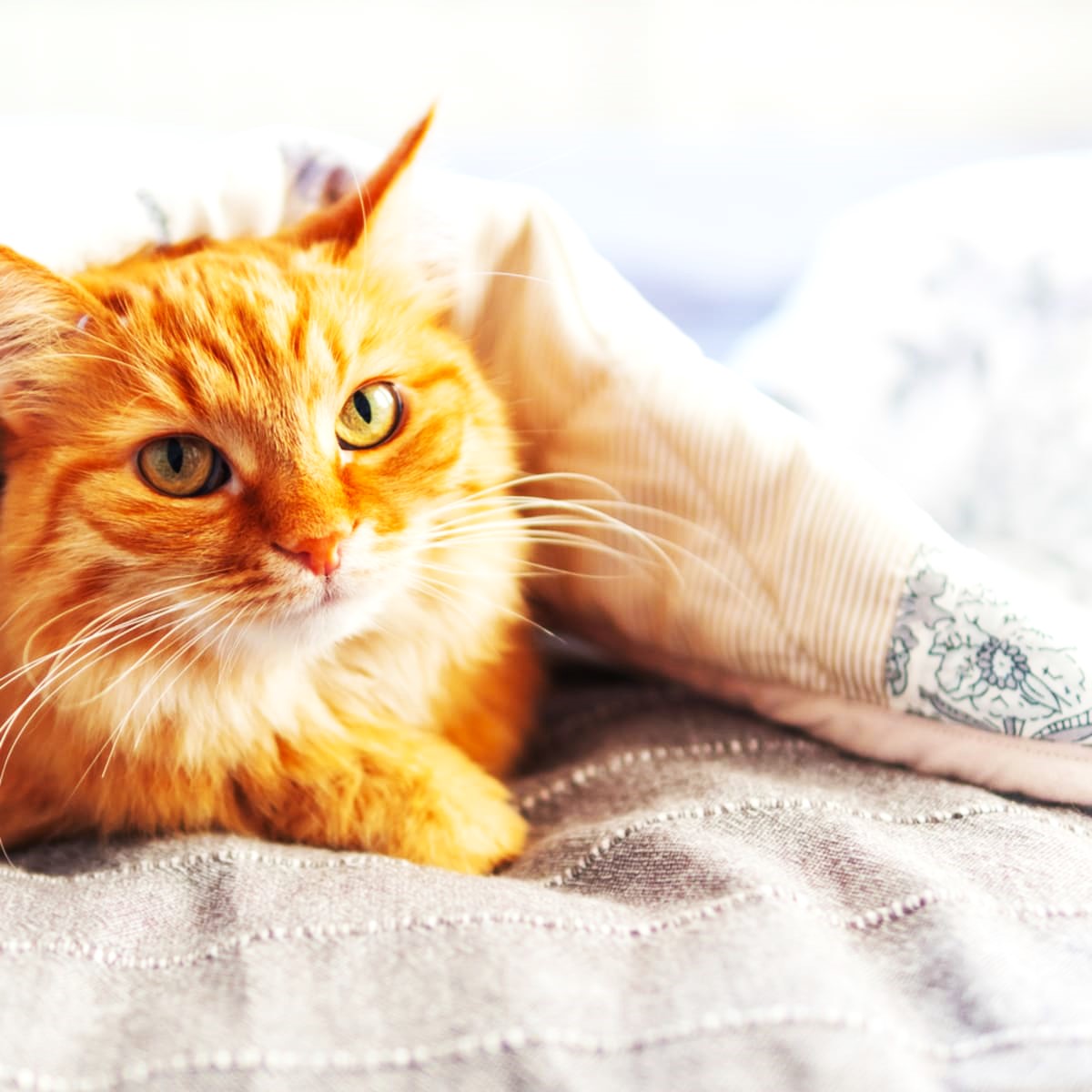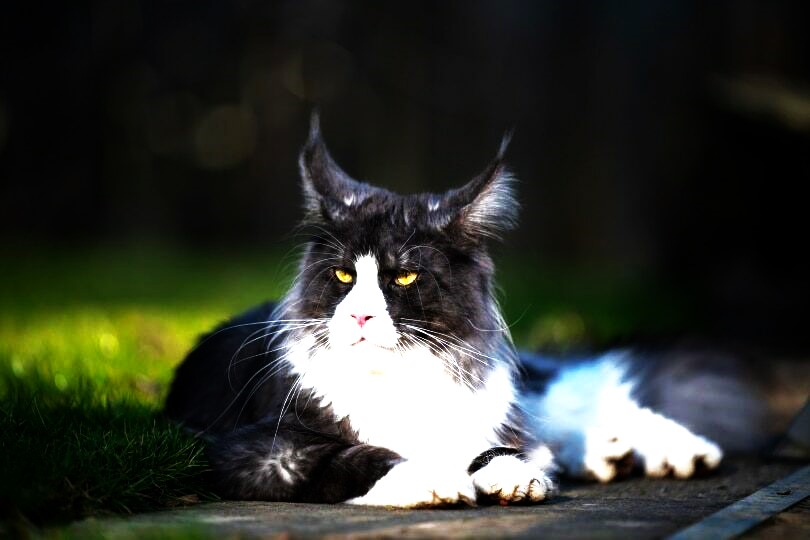Although your cat probably has a basic personality, its daily mannerisms will likely vary. Take into account these factors that affect your cat’s personality if you want to learn more about what makes them tick.
Cat Personality and Genetics
The genetic makeup of cats can only be fully understood in purebred cats. Because different cat breeds have existed for a considerable amount of time, their distinctive traits—like body types and personalities—have largely remained the same. Breed standards state that since cat breeders have worked to breed to type, breed-specific colors have also remained consistent. It’s an interesting side note that cats‘ colors can also indicate their personality.
Aside from external factors, breed personalities tend to stay relatively consistent. For instance, the Persian Cat Profile from the Cat Fanciers Association characterizes this breed as “sweet,” “gentle,” and in need of “an atmosphere of security and serenity.”

Environmental Elements
Since domestic or mixed breed cats make up the great majority of pet cats, their environments have the single biggest influence on their personalities. “What is the overall mood of the home?” is the one environmental factor that matters most to cats in their homes. The ideal environment for cats is a house where the interactions among the human family members are generally harmonious and peaceful, or boisterous and joyfully energetic.
Cats detest change in all its forms, and daily attitude shifts are among the things they detest the most. The cats’ personalities will mirror the changes in their human counterparts, whether they are boisterous and joyful one moment, melancholic and aloof the next, or perhaps even fighting boisterously the next. A reclusive, shy cat could spend days hiding under the bed. Kind of like a redirected aggression syndrome variation, an otherwise active cat may all of a sudden turn on his favorite feline housemate.
Changes that could impact your cat include the following:
- strangers arriving and departing, like repairmen or new guests.
a new kitten or cat in the house.
When one of the cats or a human family member becomes ill, it affects the other cats as well. A sick cat could experience depression. If one of the cats passes away, the others will be devastated.
On the other hand, although it is not a guarantee of peace among cats, cats will feel free to interact according to their own temperaments if the human family members are generally on an even keel. - Being picky eaters, cats will not put up with soiled litter boxes or spoiled food. Being messy is one thing, but having a foul-smelling home is quite another. Most cats would get withdrawn, depressed, and probably physically ill in that kind of environment. Conversely, all other things being equal, a happy cat has a clean (though not necessarily tidy) home with wholesome food, cool, clear water, toys, and scratching posts.
Past Events
The past of a cat greatly influences both personality and behavior. The purchase price of most purebred cats comes with a full pedigree spanning multiple generations, as they are typically acquired from catteries. A purebred cat bought from a backyard breeder (kitten mill) will undoubtedly have a very different personality than a cat raised “underfoot” in a respectable breeder’s home, but history is more than just pedigree.
When it comes to domestic cats, who frequently come from animal shelters or are found on the streets, not much is known about their past. A cat might have been subjected to abuse. Someone in his former family may have loved him, but the cat had to go because someone else wanted to get a dog. Alternatively, the lender might have foreclosed on the house or forced the previous owners to leave. It is not uncommon for them to just drop the cat off at the shelter or leave him behind in these situations.
The different personality traits of the cats living in a particular home will be influenced by any combination of the aforementioned factors. A abused cat from a previous home will probably need extra care, but with time, it can develop into a well-mannered cat with a kind, loving temperament. If he is thrown into a chaotic, dysfunctional environment or a house full of stressors, he might never stop being a “fraidy cat.”
Order in the Cats
The majority of multi-cat homes have a hierarchy that can fluctuate daily or even occasionally.
The Alpha Cat: Cats that are deemed alphas display their superiority over other felines in the home. When another cat poses a threat to its dominance, this can result in violent interactions. The cat might launch a full-blown attack or just hiss and swatte. It’s a difficult situation when alpha cats attempt to assert their dominance over their human companions. Even though you don’t want to be a bully yourself, you also can’t let a cat bully you. Here, taking away privileges is an effective training method (one privilege being our company.) Cats learn about cause and effect through examples like, “You bite me when I’m petting you, and you get no more pets today,” or “You try to hog up the food dish; you get locked up until the other cats have eaten.”
The Beta Cat: The beta cat is typically second in line to the alpha cat, but this does not always imply that the beta cat wants to be the alpha. The beta cats might make an attempt to establish secondary dominance while the alpha cat isn’t around.
Will you ever be able to solve them?
Cats frequently exhibit multiple personality traits at once, making them mysterious creatures. This kind of behavior in humans we could refer to as “moodiness.” About them, there are just three things that are certain:
- You’ll never fully comprehend them.
- They are a rare source of the unconditional love that people long for.
- Without them, your life would be dull and meaningless.
Additional Resources:
- https://www.thesprucepets.com/the-feline-personality-554041
- https://www.psychologytoday.com/intl/blog/the-modern-heart/202011/8-factors-contribute-cat-s-personality
- https://katzenworld.co.uk/2023/07/10/nature-vs-nurture-what-influences-your-cats-personality-the-most/
- https://meowtel.com/blog/post/4-factors-that-shape-cat-personalities




